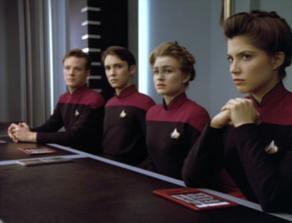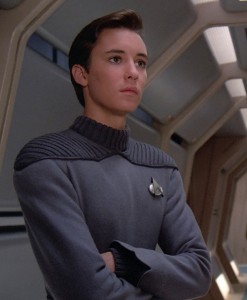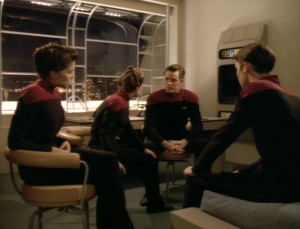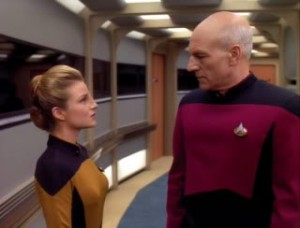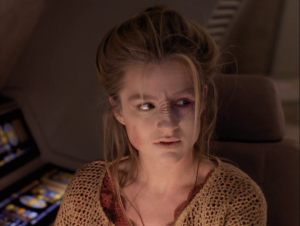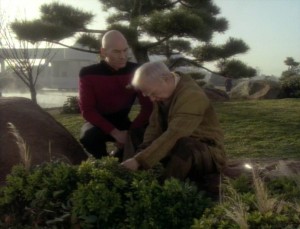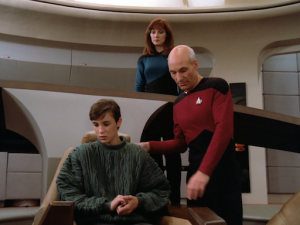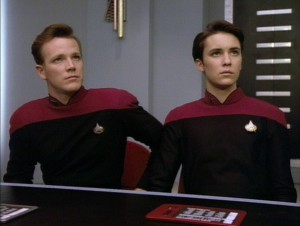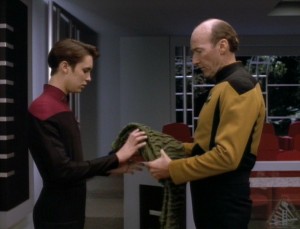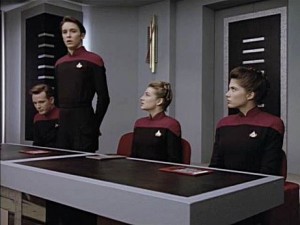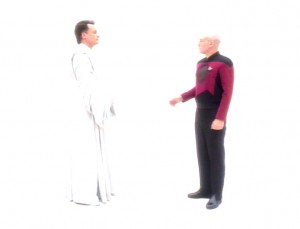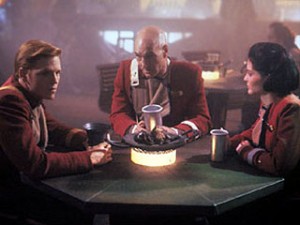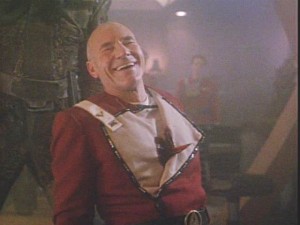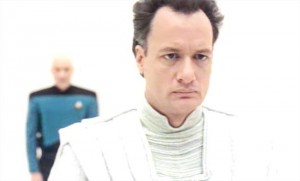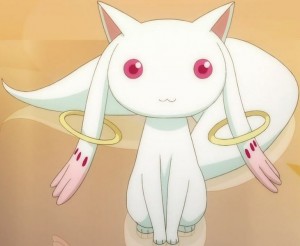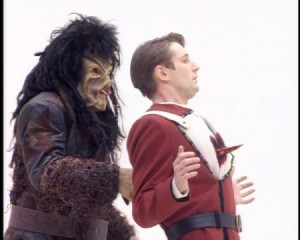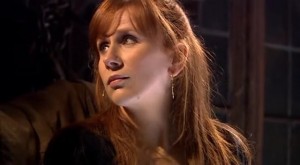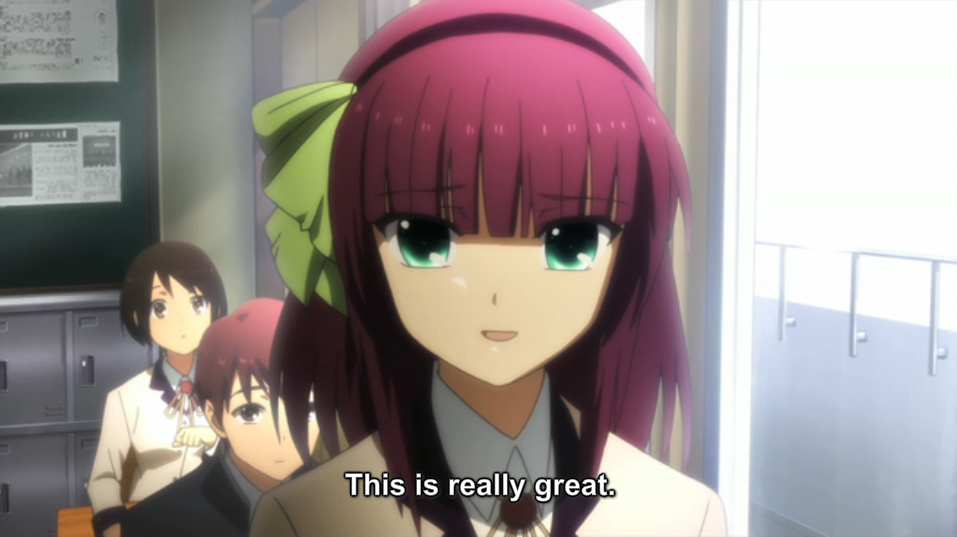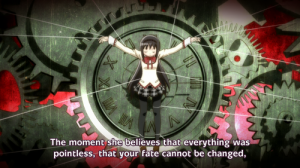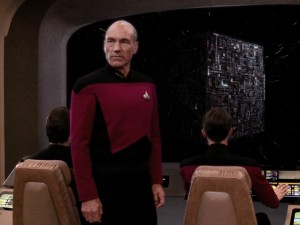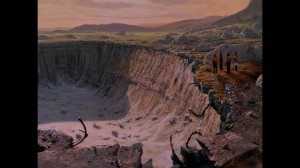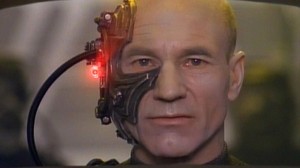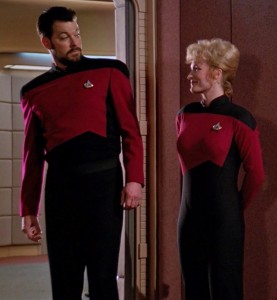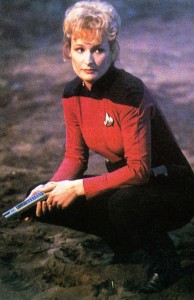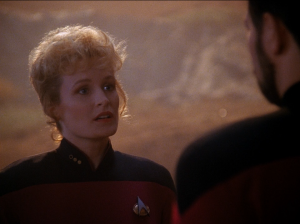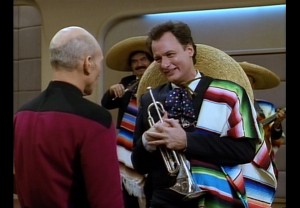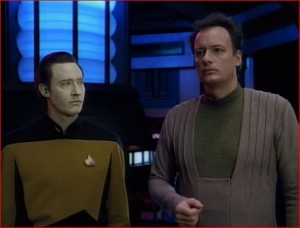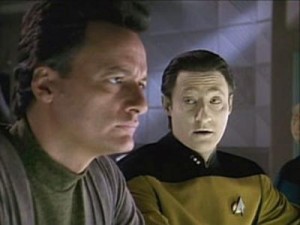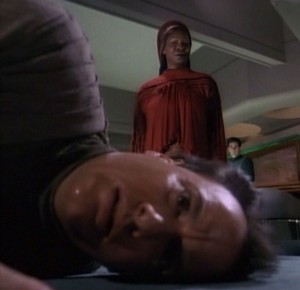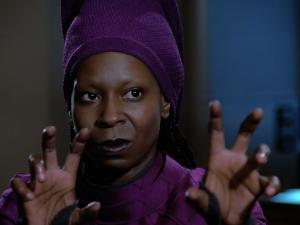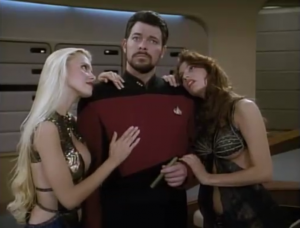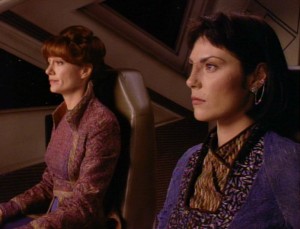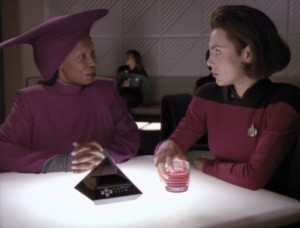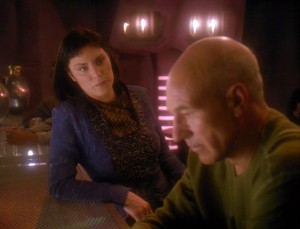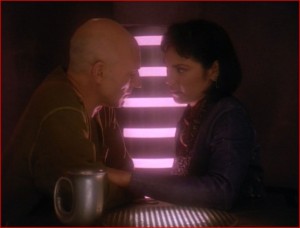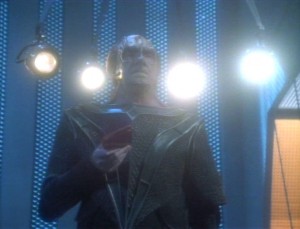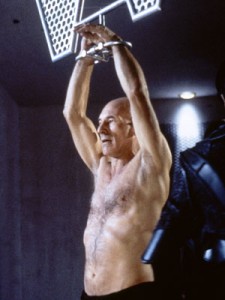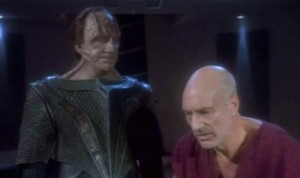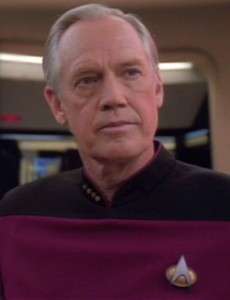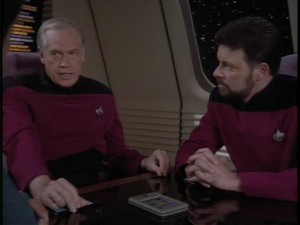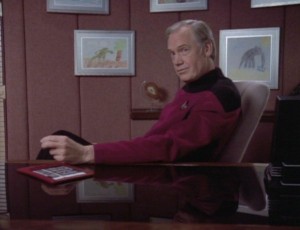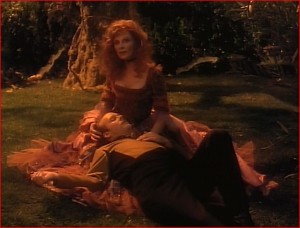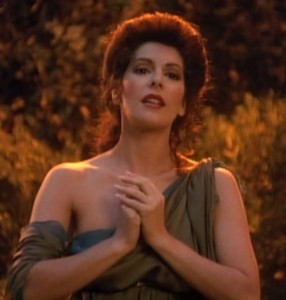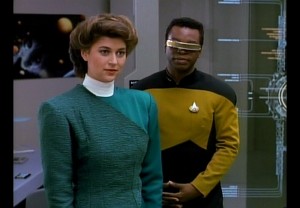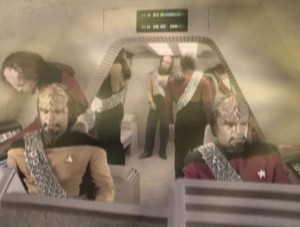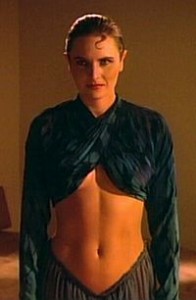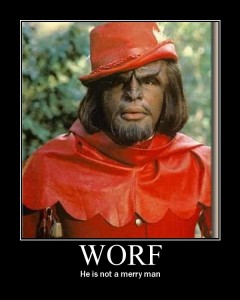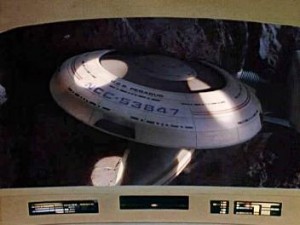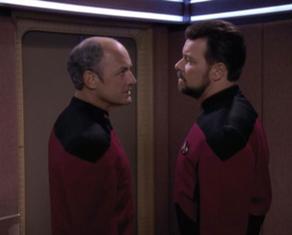This is the ninth entry in my “Top Ten Star Trek: The Next Generation” episodes.
The first duty of every Starfleet officer is to the truth, whether it’s scientific truth or historical truth or personal truth! It is the guiding principle on which Starfleet is based! And if you can’t find it within yourself to stand up and tell the truth about what happened, you don’t deserve to wear that uniform!
That quote, in a nutshell is the reason that this episode is my absolute favorite episode of Star Trek: The Next Generation ever. I picked this episode over “The Best of Both Worlds”, “Tapestry”, and all the other wonderful episodes on my list.
Wesley Crusher
Wesley Crusher is among the most hated and problematic characters on TV. He was introduced in the first season of TNG and the writers didn’t really know what to do with him. Frankly, the writers didn’t really know what to do with any of the characters for the first few seasons of the series.
I went to see “Datalore” in a movie theater when they were releasing the Blu-Ray versions of the each season of TNG. There is a point in the episode where Wesley is the only character who realizes Data is not Data. At that point, Picard snarls, “Shut up, Wesley!” Everyone in the theater burst into cheers. It bothered me that the writers would make Picard do something so unprofessional and out of character, but honestly he was saying what everyone probably thinks.
Wesley also wound up getting placed in this terrible characterization of always saving the ship. You had the elite, best of the best officers serving on the flagship of the Federation being made a fool of by a teenaged boy. I remember there was an episode where he creates a program that simulates voices and uses it to hack into the computer and make himself captain. I give props to Wil Wheaton for doing what he could with the character because I think I would have gagged over nearly everything he was given to do.
That was one reason this episode was so great. You had this problematic character who somehow miraculously always knew what to do who was now put in the very human situation of making a mistake. Not only did he make a mistake, he doubled down on his mistake by trying to cover it up.
I remember growing up somewhat isolated and not having a lot of friends. I found a group of friends in college. My father wanted me to transfer to a better school my last year of college. I chose not to because I found friends for the first time in my life and I thought that was more important. A week after the deadline to transfer all of my friends turned on me and I spent my last year of college alone. Wesley’s decision to stick with his friends out of loyalty rings true to me. It is very hard to betray people you know and want to like you, so his behavior is completely understandable. It is also understandable why he chooses to finally do the right thing. If everyone had to look Patrick Stewart in the eye while he tells them they disappointed him, then no one would ever do anything wrong.
Ensign Sito
One episode I had on my top ten list that I dropped because I realized it would overlap was “Lower Decks”. That episode appealed to me because it follows up from this episode.
Sito Jaxa is one of the members of Nova Squadron who is punished for her role in the cover-up. She doesn’t make a huge impression in “The First Duty” because you have powerhouse performances by Patrick Stewart, Ray Walston, and Robert Duncan McNeill.
When she comes back in a few seasons, you probably don’t remember her. You get a reminder that she has a backstory later in the episode.
Her story is interesting to me because it is a story that doesn’t get told very often. She is a person who made a mistake and was punished for it. That mistake could have ruined her future. She had to repeat a year of school and she lost all of her friends. She was known as one of the cadets who killed a teammate and tried to cover it up. The pressure of that drove Wesley to drop out of the Academy.
In fiction, we like self-contained stories. Person does something stupid, they get punished for it, the karmic balance of the universe is restored, let’s go have cake. There is a reason all the princess fairy tales end with “happily ever after” after the wedding. At that point stuff starts getting real and messy and complicated.
It is a very real thing to have your life torn apart and having to figure out where you go from there. One reason I find Steve Jobs compelling is that his story could have ended back in 1985 when he was forced out of Apple. Man starts company, is in over his head, flies too close to the sun, then crashes back down to Earth. Nice and tidy.
Except it isn’t. Your life crashes around your ears and you keep living. You can’t stop. You keep having to move forward. You learn. You change. You gather the pieces of your life and you start over.
I have encountered many people over the years who tell me that one false move will destroy my career. I do one wrong thing and it is over.
It doesn’t have to be that way.
I thought my life was over six years ago. I had everything I worked for evaporate overnight. Everything was gone. I was 27 years old and I had no idea what I was going to do with my life. I did know, however, that I had to endure. I knew that I could not just give up on myself. I knew it would take time and it would be hard, but that I needed to get over it and keep going.
I don’t think that one bad decision I made when I was in my 20s should label me a failure and determine that I will never succeed. I think people are fully capable of learning from mistakes and becoming new and better people. I am not the same person I was five or ten years ago. The fact that they brought this character back and had her talk about having to pull herself together and persevere after nearly having her career destroyed by a mistake was just awesome.
Picard and Boothby
One of the best pieces of advice I ever got from my parents was to always be nice to support staff. Support staff are the people who really know what is going on. Being mean to them is tacky and it is also a really bad idea because they usually know more about what is going on that the people in “charge”.
It is telling that when Picard gets back to the Academy the first person he goes to for the inside scoop is Boothby.
It is interesting that in my last recap, “Tapestry”, Picard got a chance to go back and prevent himself from making a mistake. Boothby helped him with some trouble that is completely different than the territory they covered in Tapestry.
I find it interesting that so much of the series is focused on breaking down Picard. He lost his heart by being stabbed. He got kidnapped by The Borg. He was tortured by the Cardassians. There is a running gag in Deep Space Nine that each season they have a “torture O’Brian” episode. They may have gotten the idea from torturing Picard.
I really can’t think of any other character in any form of literature whose development comes close to that of Jean-Luc Picard. Picard is the only character I know who has been allowed to fail and come back from it. He has failed many times. He is the only character I know of who is shown as a successful adult at the height of his career who got there by failing upward.
It is really nice that you have Picard getting advice from Boothby as a cadet, becoming the wise older man, then paying it forward to Wesley.
Seriously, I don’t think you can be human and be given this speech without feeling like complete and total crap:
Do you remember the first day you came aboard this ship? Your mother brought you on the Bridge. And you even sat in my chair! I was annoyed! A presumptuous child playing on my ship! But I never forgot how you already knew every control, every display. You behaved as though you belonged on the Bridge. And then, later, when I decided to make you an acting Ensign, I was convinced that you could be an outstanding officer. And I never questioned that conviction… until now.
The biggest thing that has bothered me when I have failed is when I have let down someone who gave me a chance and believed in me. One of the things that helps me gather my fortitude and carry on is wanting to be able to show that person that they were not wrong.
Tom Paris, no, I mean Nicholas Locarno
Just want to make an aside about why the hell the creators of Voyager didn’t just call the Tom Paris character Nicholas Locarno when they cast McNeill. The character has basically the same backstory and personality. I understand that sometimes Star Trek actors get recycled, like how Dr. Leah Brahms turns up in Deep Space Nine as an admiral of some kind, but the characters are vastly different.
Maybe Tom Paris is just a shapeshifter. That would explain an awful lot, especially in that god-awful episode where they break the warp 10 barrier…
Truthiness
Earlier this year I read an article by a start-up founder talking about the cost of lying.
The general gist of the post is that when you lie to yourself or your investors, you are not living in reality. You are placing yourself in an aspirational reality that prevents you from being able to fix what is broken.
The last job I had before I dedicated myself to programming was for this company where our team leader didn’t know what we were supposed to be doing. Instead of talking to his bosses, he decided to hide the truth from them.
My second week on the job he told everyone to pretend to be busy. He would shame you if you asked any questions by implying that asking questions makes you look stupid and that if you have questions you should just keep them to yourself to avoid being judged and eventually fired. If he thought that anyone was talking to anyone else who was not on your team he would take you to an empty office and eviscerate you. He broke everyone down so that people would not leave or look for other jobs because they were convinced they were worthless and no one would ever hire them again.
All of this eventually caught up with him because I reported his behavior and the company had to deal with the fact that many things they thought were the case were based on lies. I was punished for my complicity in this scheme, which was fine. I really needed to figure out what to do with my life and that gave me the kick I needed to follow the path I needed to be on. All of this could have been avoided if the team lead had just told the truth right away and said “I don’t know what you want us to do.”
Unwillingness to deal with the truth is my smell test of whether I want to work for a company or not. If I talk to people who don’t want to deal with reality, then it is going to bleed into other areas. Most companies that have a bullying culture are unwilling to deal with the truth, so it gets ignored and swept under the rug.
Conclusion
I know this probably isn’t everyone’s favorite episode of Star Trek, but it was mine. It has many of the same themes as Tapestry, but I found this one slightly more compelling because you don’t really know what is going to happen to the characters. With Tapestry you know at the end of the episode Picard will be alive and that he will feel better about his mistakes. This ends on a question mark. There is no “happy ending” here. Wesley loses his friends and his leader gets expelled. You don’t know what is going to happen to Wesley.
I would argue that this incident is the reason Wesley kind of falls on his ass and drops out of the Academy.
Some people deal with adversity better than others. People either learn from their mistakes or those mistakes bring them down. I know that for me personally I have learned and grown so much from my mistakes that I would not trade them for anything. Other people get destroyed by incidents that happen to him. I am glad that the writers gave Wesley some grey areas instead of just having him graduate from the Academy early and be lined up to captain a ship right out of the Academy like some other Star Trek properties I could point to.
For those of you counting at home, I have only covered nine Star Trek episodes out of a Top Ten list. As we all know, “All Good Things…” must come to an end…
